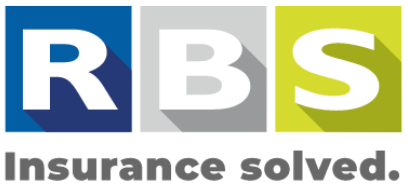When times are tough, some business owners try and save money by cutting on business insurance. Many have learnt that this can backfire horribly.
When nationwide economic pressure is on, a business is struggling, and the bottom line is under
pressure, many business owners try and cut costs in any way possible. Some do this by reducing or
not increasing their business insurance. It’s a decision that can have dire consequences. The issues surrounding businesses being underinsured have been in the spotlight in South Africa recently, with the fallout from the pandemic in 2020/2021, the unrest in Gauteng/KwaZulu Natal in
2021 and the devastating Knysna fires in 2019. Those three events led to the permanent closing of
many South African business operations.
The nature of the business, the industry, and the size of the business to a large extent determines
the type of insurance that is needed.
There are several different types of commercial insurance, which covers the following aspects:
- General liability insurance
- Insurance of commercial property (both buildings and equipment)
- Business interruption insurance
- Cyber liability insurance
- Commercial vehicle insurance
- Worker’s compensation
- General business owner policy (this could include several types mentioned above)
Besides not being insured at all, the next biggest pitfall is being underinsured, as insurers will
calculate the replacement value for which you should have insured your buildings or equipment, and if your insurance is significantly less than that, only a portion of your claim will be paid out.
Here is an example:
If you claim R100 000 for damages to your business premises, and your total sum insured is for R1
million, the insurer will take a look at what the total replacement value of your building is. If it is for
R2 million, it means that you are underinsured by 50%, and your insurer will only pay out half of the
amount that you claimed, namely R50 000. (The same goes for home insurance, or insurance of
personal possessions.)
When you have just suffered a business loss, you are unlikely to have extra cash lying around to foot
the difference, so an unforeseen event can have serious consequences for the financial health of
your business. If your liabilities overtake your assets, or if the cost of continuing operations becomes
too high, you might be forced to shut your doors. This has been a reality for many business owners
in South Africa over the last few years.
There are several reasons why business owners are under increasing financial pressure, and why the
cost of commercial insurance is rising:
- There is an increased threat of cyberattacks, and this adds to the cost of cyber insurance
- There have been sharp price increases, not just in South Africa, of transport costs (petrol
prices and vehicles), labour costs, the costs of materials, and all these things combine to put
financial pressure on business owners - An increase in extreme weather conditions as a result of climate change
- Higher frequency and severity of claims
- The weakening rand has led to higher prices for any goods or parts or equipment that have to be imported
- There has been a huge rise in the costs of underwriting (Following the unrest in July 2021 in South Africa, Lloyd’s, SASRIA’s underwriter, increased its reinsurance premium more than ten-fold) and this has a knock-on effect on policyholders
- Increasing crime rates, unrest and political instability
- In the world of business, things can change fast, and things such as the true replacement costs of equipment, or what is deemed as a sufficient business interruption indemnity period, or what the true Gross Profit of a business is, can change rapidly.
- Valuations can become outdated, and business circumstances can change rapidly. In order to prevent being underinsured, business owners are advised to do the following:
- Get regular replacement valuations on the business assets (both moveable and unmoveable property)
- Make sure that your business interruption insurance (this could include insurance to cover supply chain risks) covers the business for an adequate period of time
- Regularly engage with an experienced broker (who preferable understands your industry) to make sure that all aspects of your business remain adequately covered in the face of rapid change
- Read the small print in your policies, and make sure that all premiums are up to date

